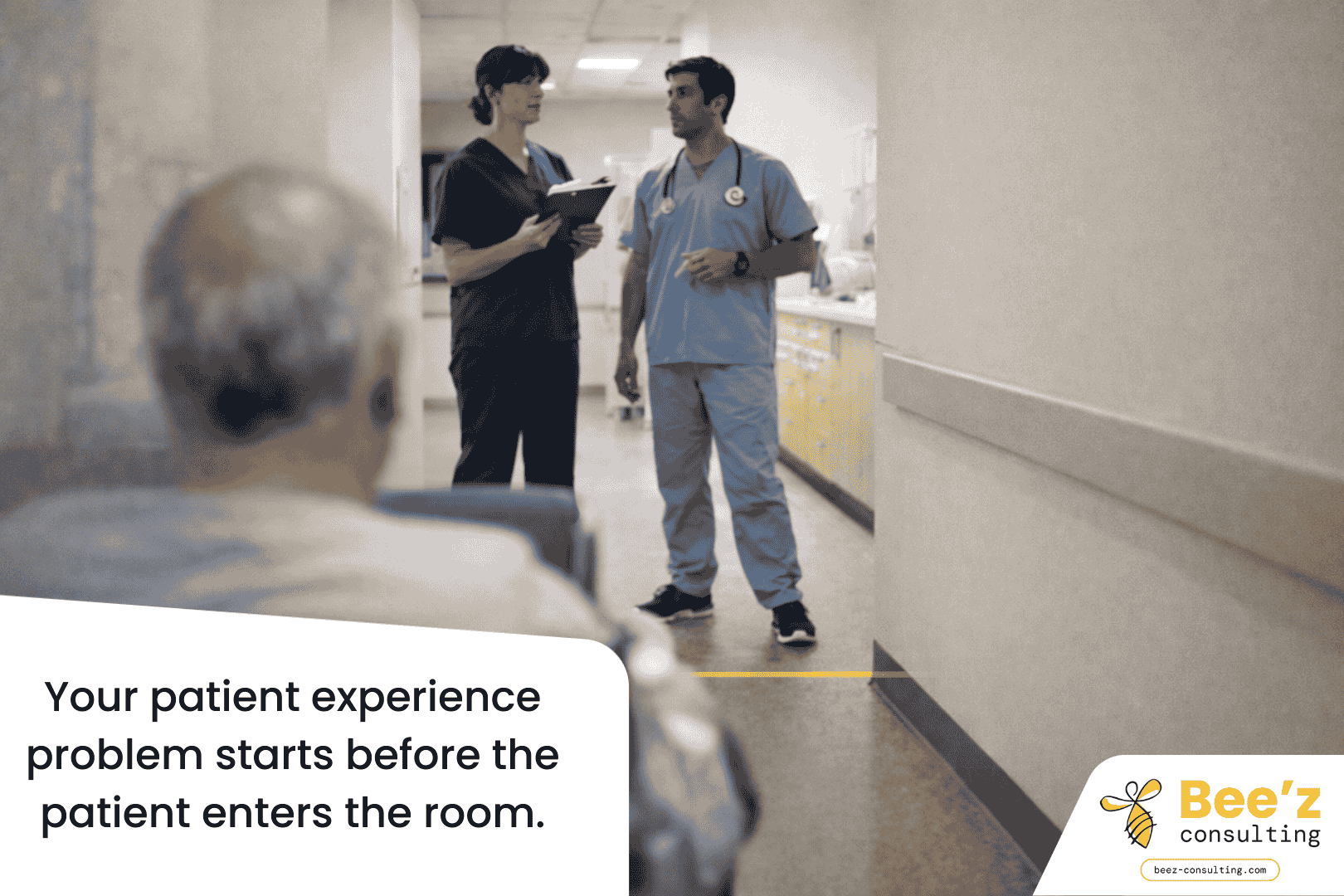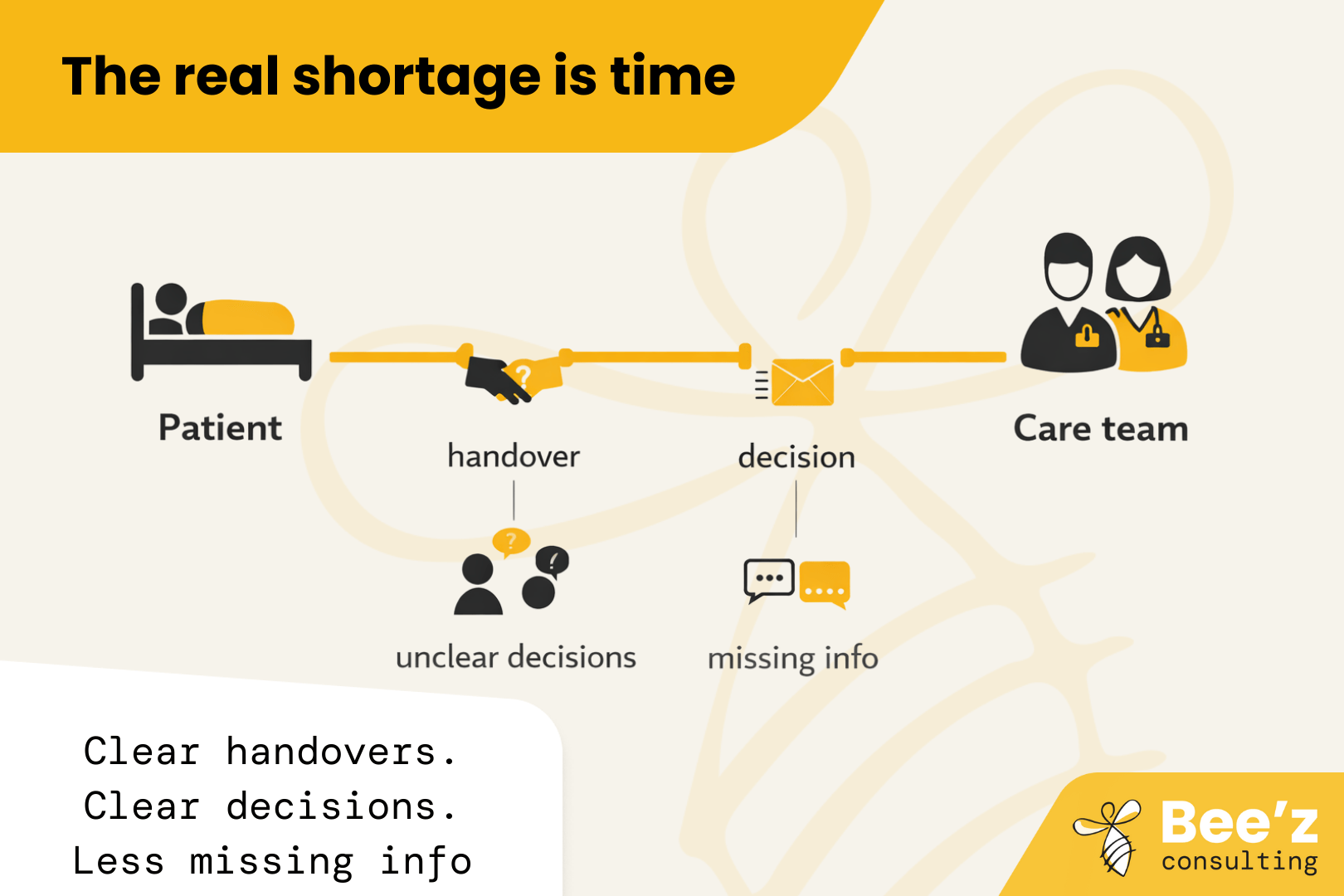
The healthcare sector bids farewell to paper medical records, embracing the digital era of Electronic Health Records (commonly known as EHR). This transition offers numerous opportunities for efficiency and improved quality of care, but it also presents a set of sometimes complex challenges.
At Bee’z Consulting, we have had a couple times the privilege of exploring strategies to facilitate this delicate transition.
Transforming your paper records into electronic files provides numerous advantages for clinics and hospitals.
Inherent resistance to change within the healthcare system to adopt new technologies is a significant challenge. Ensuring that medical staff is not only trained but also actively involved in the benefits of EHRs is an essential imperative.
The integration of digital systems into healthcare infrastructures must be perfectly transparent to limit friction and resistance to change.
The success of a transition to EHRs largely depends on the engagement and active participation of medical personnel. Involving the staff from the outset minimizes resistance to change and ensures the effective adoption of the system.
💡 The 1st step is to provide comprehensive training on the benefits of EHRs.
But this goes beyond simple explanations of how to use the system !
It involves highlighting the concrete benefits that EHRs bring to healthcare professionals and how this transition can :
Involving medical staff in the decision-making process regarding the adoption of EHRs is made possible by creating steering committees where doctors, nurses, and other healthcare professionals actively participate in discussions about system choices, necessary features, and adjustments to meet specific needs.
This creates a sense of ownership and responsibility among the staff, increasing the likelihood of a successful transition. 👊
Implement continuous support during the transition phase, including :
At Bee’z Consulting, preserving the security of sensitive medical data during the transition to Electronic Health Records (EHR) is a top priority. 😊 Our rigorous approach is based on several measures aimed at ensuring the confidentiality, integrity, and availability of sensitive medical information.

We have developed comprehensive security protocols detailing specific measures implemented to protect your medical data. These protocols include :
All sensitive medical data must be systematically encrypted so that it can only be interpreted by authorized parties. This provides an additional layer of security, even in the event of unauthorized access.
Another critical element is the implementation of advanced backup strategies to prevent data loss.
Regular backups ensure that medical information is continuously recorded in secure locations, allowing for quick recovery in critical situations, whether due to hardware failures, malicious attacks, or any other incident.
A proactive risk management approach includes constant monitoring of emerging threats. We recommend using advanced detection tools to identify any suspicious activity or potential vulnerabilities in our systems. This enables swift actions to mitigate risks before they escalate into major issues.
We also provide continuous staff training on best practices in data security.
To receive your complimentary copy of our free PDF Guide "How to change & transform your organization to succeed in a turbulent times (keeping your people on board)" for healthcare / pharmaceutical & medical devices organizations, simply click on this link.
In summary 🔍
“The transition to EHRs is not a one-time event but a continuous process.”
🧏♂️ Adopting a holistic approach to change management involves regular progress evaluations, collecting feedback, and adjusting strategies as needed. Flexibility is essential to ensure that the transition remains aligned with the evolving needs of the healthcare environment.
To receive your complimentary copy of our free PDF Guide "How to change & transform your organization to succeed in a turbulent times (keeping your people on board)" for healthcare / pharmaceutical & medical devices organizations, simply click on this link.


Patient experience starts before the bedside. Fix staff-to-staff handovers with two simple habits that cut friction, boost clarity, and build trust fast.


The real shortage is time with patients. “Thrive” is the missing lever. Fix daily workflow friction so hiring and retention finally pay off.

.png)
Leadership often breaks under pressure, not in training rooms. See why simulations help leaders practise real decisions and conversations, and how Bee’z Consulting turns practice into visible results within 7 days.
